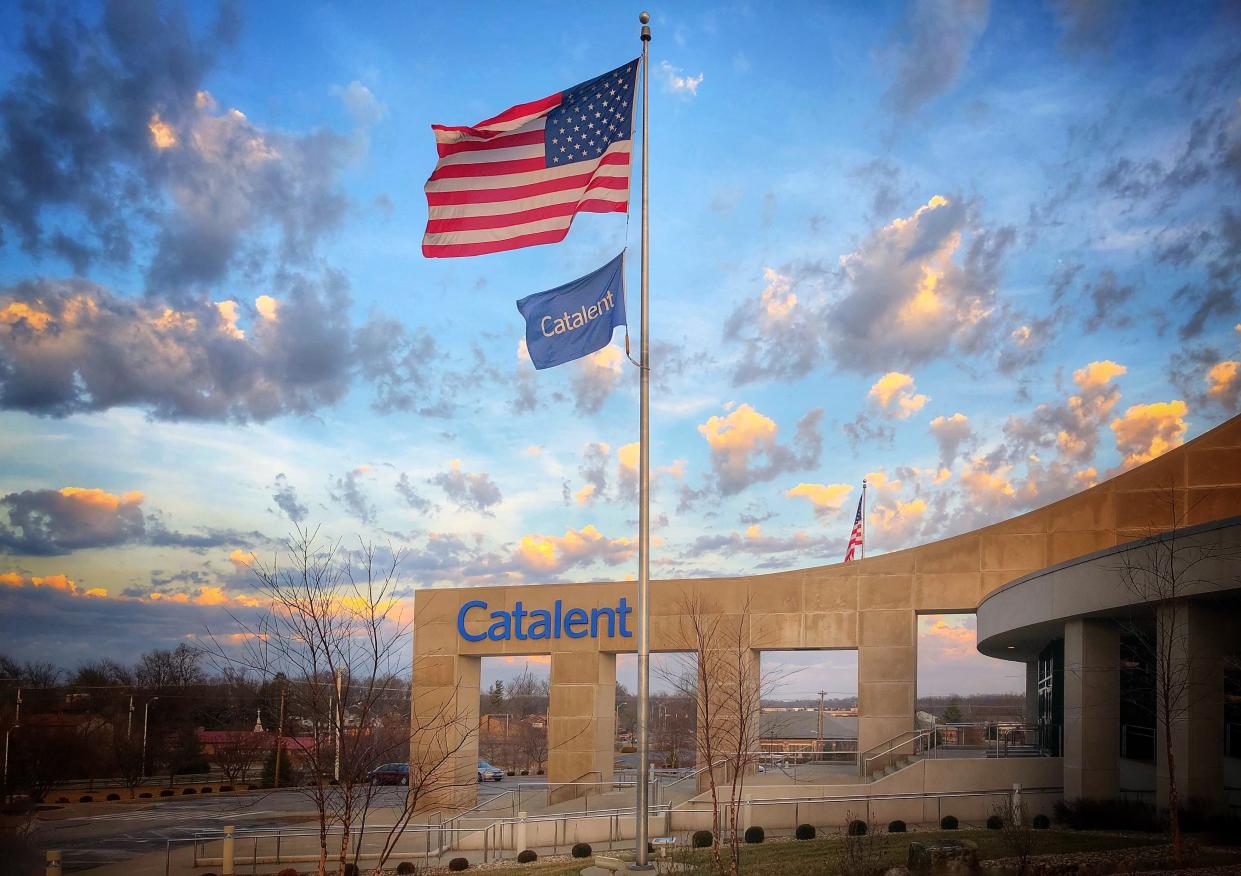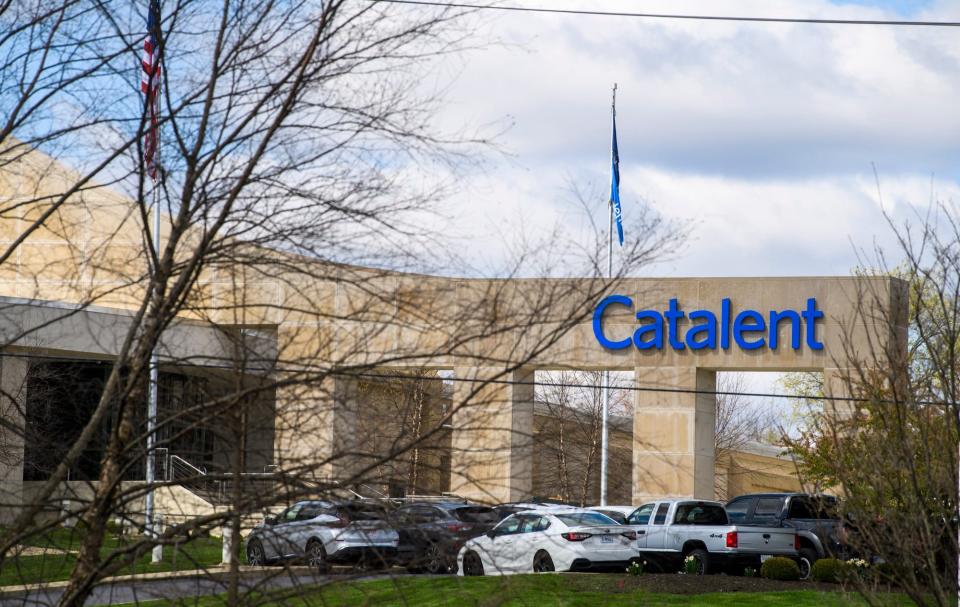Does Catalent still plan to create 1,000 new jobs in Bloomington?

Drug maker Catalent is unlikely to create enough jobs in Bloomington to trigger the $43 million tax break the company obtained, the city’s economic development leader said.
Here’s what that means and how it could affect your personal finances.
What did Catalent plan to do in Bloomington?
Catalent, based in Somerset, New Jersey, said in April 2022 that it planned to invest $350 million in Bloomington and to create 1,000 new jobs “in the coming years.”
More: Catalent commits to investing $350M in its Bloomington facility, creating 1,000 new jobs
At the time, a company executive said, “These investments will enable us to expand our flagship Bloomington facility and extend our leadership as one of the largest and most comprehensive global centers for integrated manufacturing capabilities.”
What did Catalent request from the city of Bloomington?
Before it committed to the investments, Catalent asked the city council to reduce property taxes on the equipment by 90% over 20 years. Council member Stephen Volan said at the time that it was, by far, the largest tax abatement the council had ever considered, and the running time of the abatement was twice as long as normal.
Despite the size and length of the abatement, other council members, including Sue Sgambelluri, said Catalent had, in the past, had “underpromised and overdelivered” and the 1,000 jobs and high wages would benefit the community.
How would Catalent's tax abatement affect the city’s and your personal finances?
Although the city agreed to reduce Catalent’s property tax bill — provided it met the investment and hiring thresholds — the city would not have received less in property taxes. Governmental units in Indiana are guaranteed a certain property tax amount, called the levy, and that amount does not change even when the city gives anyone a tax break. Instead, the taxes that are forgiven for one taxpayer are instead spread over the remaining taxpayers.
According to an H-T analysis of some tax bills and data provided by the Monroe County Treasurer’s office, some homeowners would save only $10 a year if Catalent made the investment without getting the tax break, but for a home within city limits with a value of $250,000, the annual property tax bill would be $70 lower per year, for 20 years, for a total of $1,400.
More: Who would pay for Catalent's tax abatement? Not the government
For cities, tax breaks are generally a good deal because they don’t lower property tax collections and, at the same time, the investments are usually tied to job creation, and jobs increase a city’s income tax collections.

The 1,000 jobs Catalent had planned to add to Bloomington in the next few years would have generated an additional $466,000 per year in city income taxes, according to Alex Crowley, director of the Bloomington Economic and Sustainable Development Department. The investments also were projected to create another 2,230 jobs outside of Catalent.
Why is Catalent unlikely to get the abatement?
Crowley said last week the prospect of Catalent being able to meet the 1,000 jobs threshold by the end of 2026 “is pretty small at this point,” based on what company officials have told him.
Catalent did not reply to repeated requests for comment, but the company did not file paperwork with the auditor's office this year that would have allowed it to get a break on next year's tax bill because of new investments.
Most recently, the company has cut jobs — rather than added them — as its fortunes have changed dramatically since the end of the pandemic. Catalent ramped up production of COVID-19 vaccines quickly and expanded its Bloomington operations with more than $100 million in investments and an additional 1,300 employees in 2020. In 2021, the company added 1,000 more employees in Bloomington and raised its starting wage to $19 per hour.

In April 2022, the company committed to the $350 million/1,000 jobs investment in Bloomington, but said eight months later that it was cutting about 400 local production jobs. A general manager at the time said Catalent was “navigating a challenging global economic environment … (in the) the post-pandemic world.”
Catalent cut another 150 jobs in Bloomington this month because the company underestimated the complexity and difficulty of transitioning to post-pandemic production, the company’s local manager said.
Crowley said the 1,000 new jobs Catalent promised for the tax abatement is a net gain above the company's cumulative employee count in Bloomington. That means Catalent can meet the 1,000 new jobs threshold for the tax abatement only if it adds the 550 jobs it has cut in recent months and then creates an additional 1,000 jobs.
'Unsustainable': Bloomington Catalent facility cuts 150 more jobs
Crowley said, however, that Catalent still has time to meet that target. Catalent has until the end of 2026 to make the investments and to create 1,000 new jobs. The company does not have to meet milestones along the way. So long as it fulfills its obligations by the end of 2026, it can obtain the tax break.
How much will Catalent still invest in Bloomington?
Crowley said this week via email that the city has received information from the company "suggesting that they were continuing their investments into 2023 and had made some of them already."
Exactly how much they had invested was unclear. According to the Monroe County Assessor's office, the value of Catalent's land and equipment this year is $124.4 million, up $42.7 million from last year. Crowley warned, however, that the amount invested and the assessed value "are two very different things."
If Catalent invests $350 million in equipment and it does not qualify for reduced taxes, that would mean the company would have to pay the full taxes on that equipment over the next 20 years, or an additional $43 million. That also would mean tax bills for local property taxpayers would be reduced by that amount over the next 20 years.
How all of that will actually play out, though, is unclear. A Catalent advisor said last year that the 90% tax reduction granted by Bloomington was a “very material data point” in the company’s decision, as some other states that Catalent was considering for the investments — including Wisconsin and Maryland — have no tax on personal property. If Catalent has to pay the full 100% in property tax on the new equipment in Bloomington, it may just decide that it is cheaper to make the investments elsewhere.
Boris Ladwig can be reached at bladwig@heraldt.com.
This article originally appeared on The Herald-Times: Has Catalent's plan to create 1,000 new jobs in Bloomington changed?

